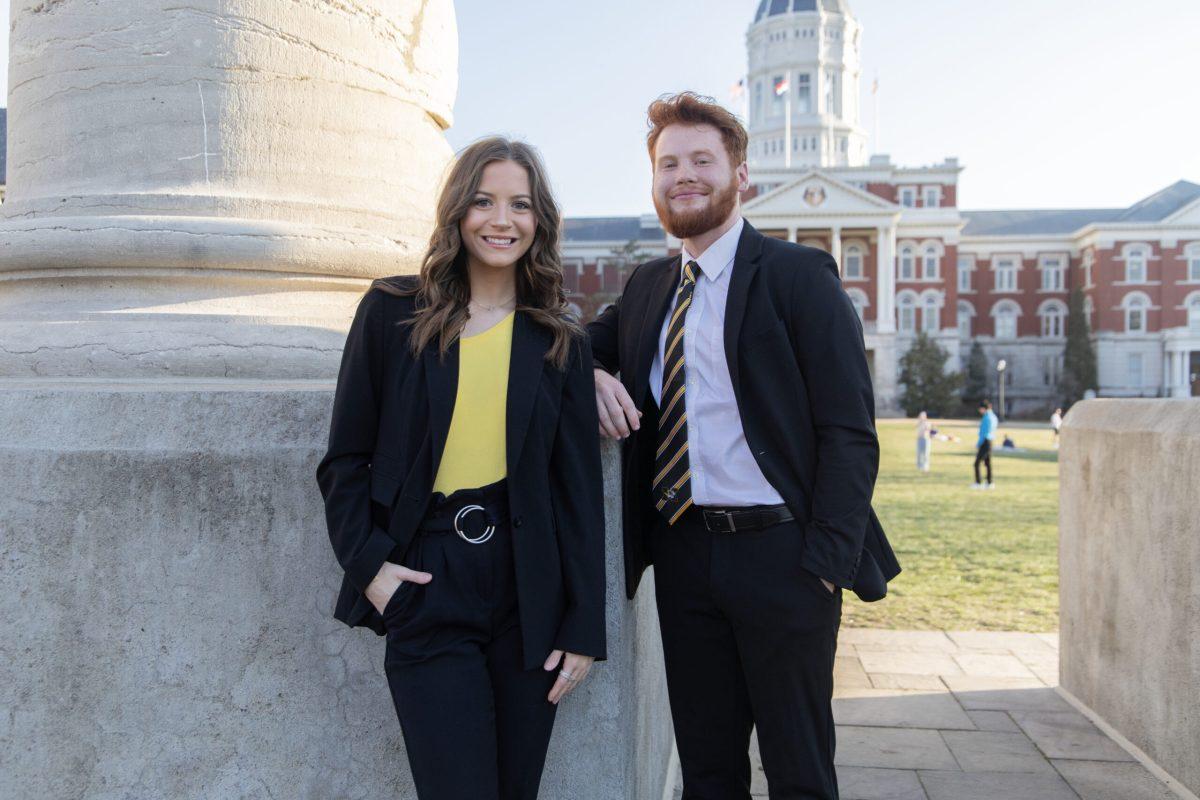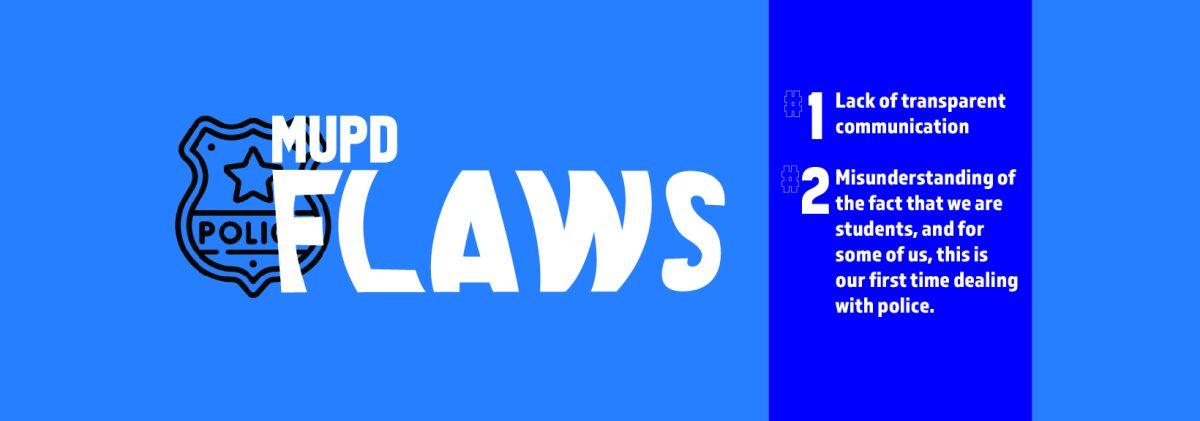To our campus community,
We want to thank the Maneater Editorial Board for choosing to endorse Maximize Mizzou — albeit begrudgingly. This campaign has been confusing for everyone, and for that, we apologize. Our job as a slate is to educate students on our platforms, how Missouri Students Association works and why people should get involved in the election. We hope to clear some of that up. The Editorial Board brought forth some common questions and valid concerns about the state of each slate and our positions on issues. The main concerns the Editorial Board brought up were what MSA is and how it functions, actionable change to resolve issues with the Counseling Center, addressing racism on campus, recognizing the effects of hazing and related violence in Greek Life and our qualifications as candidates.
To establish some context, a lot of issues discussed in the debate are quite simply just difficult to solve. It requires mountains of institutional knowledge of MU bureaucracy, navigating miles of red tape and needing to meet with student leaders and administrators before we can even begin to draft possible solutions. But we are not here to complain or make excuses. We want to work as hard as we can to navigate these challenges and we will begin working on solutions as soon as we take office if elected. We hope to clear up some confusion about how we plan to achieve our goals here.
Regarding the issue of what MSA is and what it does, MSA is the student government that represents all undergraduate students on campus. It is an organization that is founded on communication with administrators to pursue policies and initiatives that seek to improve the Mizzou experience for students. There are three branches to the MSA structure — Executive, Legislative and Judicial — just like the U.S. government.
The role of the President is to appoint the positions of the executive cabinet, justices and fill student roles on university committees. They can also approve or veto legislation that is passed through the MSA Senate. The Senate is composed of undergraduate students that draft and defend legislation relating to student and campus issues. The President represents student voices to administrators and works on projects that deal with student interests – for example, the platform we are running on.
The role of the Vice President is to fill and oversee the Chancellor’s Standing Committees and work with the MSA auxiliaries: Tiger Pantry, STRIPES and Truman’s Closet. These auxiliaries are student resources that are funded directly by MSA. Both the President and Vice President are to report to the Senate with updates and information monthly. The MSA Senate consists of 81 student senators and is headed by the Senate Speaker. Internally, the Senate serves as a check to the executive and judicial branches by creating policies, rules and regulations that guide the operations of MSA. Externally, the Senate represents the interest of the student body within MU and around the MU community through several means, including collaborating with other entities and the creation of resolutions.
Maximize Mizzou plans to create actionable change within the Counseling Center, and here’s how. First, we plan to work with the Office of Institutional Equity to include students in the hiring process of new staff. Students are involved in other areas of hiring at MU, and student input of a resource directly dealing with students ensures that we will have staff who are equipped to work with various student experiences. Secondly, we plan on working with the existing Counseling Center staff, the Office of Institutional Equity and student groups that represent disadvantaged students to develop new diversity trainings for Counseling Center staff. We need their staff to be better equipped to recognize and work with a diverse array of students. This could be in terms of race, ethnicity, religion, sexuality or gender. These trainings already present industry standards for counseling services that have already been developed and put into place elsewhere, making this quite a reasonable goal. In addition, we will continue to amplify the programming, services and opportunities within the Counseling Center through MSA social media channels to ensure students have the information they need to seek help with their mental health. We will also improve and implement another MSA Mental Health Week as established by the current administration.
When it comes to addressing and confronting racism on our campus, it is necessary to recognize that our slate consists of two white students, the sole beneficiaries of a predominantly white institution. Mizzou is a 183-year-old institution that has a long history of disenfranchising people of color. Recently, it has been the site of multiple Black-led protests in the fight for racial justice. Race and MU will never be separated, and it is imperative to recognize this. As white people tend to try to confront racism and its effects, they look toward communities of color and put the work onto those communities as they are forced to be their own advocates for racial justice. This approach is wrong and irresponsible. This not only takes away the responsibility of white members of our campus, but it also puts an unjustly larger responsibility on students of color who are already dealing with the effects of racism on a daily basis. As white students at a PWI, it is our job to dismantle the systems that primarily serve white students.
Our logo is a megaphone for a reason — we want MSA to be the place for all students’ voices and concerns to be heard, respected and recognized. Maximize Mizzou has built upon connections with identity-based organizations and we hope to continue making these bonds permanent through our administration. In order to accomplish this, we will redesign the framework for communication and collaboration with student groups that represent students of color to increase engagement and foster more connections across campus. We will collaborate with the MU Division of IDE to include students in the hiring of their staff. We will do everything in our power to fill our executive cabinet and Senate organizational seats with students who truly represent the student population of MU.
In terms of Sami’s “flaunting of power,” this was in reference to how we plan on achieving our goals as a slate if elected. The relevant past positions and leadership roles that she shared demonstrate how she is thoroughly prepared for the position of President. It is necessary to provide context of our capabilities. As we have both said from day one: We are not in this for the position of power, but rather for the greater good of Mizzou students and the work that we can do for them with what we’ve learned about the institutions of both MSA and MU as a whole.
Once again, we thank the Editorial Board for their endorsement and hope that this has addressed the concerns they have brought up. We are not going to be perfect, but what we can do is listen and be responsive to the concerns of students. We hope that you choose to support Maximize Mizzou, not out of terms of “settling” but rather through faith that we will do everything in our power to serve the student body and achieve our goals that have been set forth. Thank you to everyone for your continued support and we hope to see everyone at the polls this week!
Sincerely,
Samantha Hole, Presidential Candidate
Daniel Daugherty, Vice Presidential Candidate

















